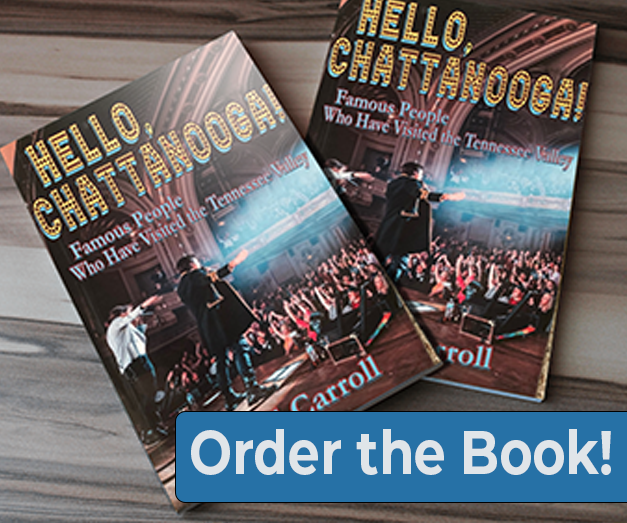When my local daily newspaper announced they were going all-digital, the response was fast and furious.
Chattanooga has had a daily printed newspaper since 1869. For most of the 20th century there were two, and for a brief period, even three.
A 152-year-old habit is hard to break. Starting in June 2022, the Chattanooga Times Free Press will stop the presses, except on Sundays. On the other six days, subscribers must adapt to an online format the newspaper describes as “enhanced content.”
The typeface can be enlarged with a pinch of the fingers. Some of the articles will include video, and color photographs. No more ink on your fingers, and no more stacks of recycled papers.
The newspaper will even provide an iPad for subscribers, and teach them how to use it. The publisher said in other cities, early skepticism from readers soon turned into widespread support.
For now, I’m seeing some resistance. Many readers say they don’t mind the ink. They enjoy braving the elements to go out and fetch their paper.
Newsprint seems to blend well with coffee and toast. Solving a crossword puzzle isn’t the same without a pencil (or a pen if you’re really confident).
Many of us are now accustomed to reading news on our handheld or desktop devices. But there’s something comforting about the tactile sensation of holding a newspaper, or perusing its contents as it rests on the dinner table.
Our refrigerator door is a showcase of comic strips and colorful photos that caught our eye. Our scrapbooks are filled with clippings of awards, engagement announcements, and columns that made us laugh.
It has not gone unnoticed that most newspaper readers are, well…how do I put this delicately, seasoned veterans of life. Sadly, many of the complaints about the Chattanooga paper’s transition to digital begin with sentences like, “My 93-year-old mother won’t know what to do.”
Some older readers are expressing resentment and anger over the loss of a daily printed paper. “How am I supposed to know when my friends die?” one lady wrote. “First it was COVID, and I couldn’t attend a funeral, and now this happens.”
When younger people respond by saying, “Relax Granny, you just have to download an app on your smartphone or iPad,” or, “It’s much more consumer-friendly to digest the digital replica on your tablet,” they might as well be quoting the scientific technobabble used by Sheldon on “The Big Bang Theory.” It all sounds the same.
(You will not find many folks under 30 with ink on their fingers. You will, however find them wearing ear buds, with eyes aimed downward toward their tiny screen, unaware of oncoming traffic.)
Certainly not all elderly readers are afraid of the new challenge. My father loved his computer, buying and selling auto parts all over the nation. But my father-in-law refused to even touch a computer. He called it “That (expletive deleted) know-it all.” Occasionally, he would ask a question I couldn’t answer. “What’s the population of Guatemala?” I’d say, “Let me look it up.” “Oh,” he would reply. “You have to ask your #%@&# know-it-all!”
Although I can handle the basics of a digital device, this won’t be easy for me. I am a newspaper addict. On vacation, I pack a roll of quarters, and I will track down the last paper rack in town. I’m the guy who grabs the newspaper you leave behind at the restaurant or the airport. I haven’t yet dug one out of the trash can, but I’ve thought about it. How would it look to see a grown man, scavenging for the sports section? “That poor guy,” onlookers would say. “He’s probably hoping there are some fries wrapped up in that paper.”
For decades the daily newspaper has been my window to the world. As a child, having the worldwide headlines dropped off in my rural driveway was like a daily miracle.
So why is my local paper shutting down the press six days a week? They hope a reduction in spending for ink, paper, and delivery will enable them to keep paying for journalists. They hope citizens will continue to support independent reporting.
Whether you’re reading this column on paper or on a screen, be thankful for the newspaper in which it resides. It has overcome some serious obstacles. Subscriptions were once an added bonus in its bank account, overshadowed by advertising revenue and “the classifieds.” Now, your annual contribution is its lifeblood. Please remember this. In many small towns and counties, local journalists serve as your only watchdog.
So however you get your news, renew your subscription, and support the advertisers. If you ever lose your local reporters, you lose much more than a companion for your coffee. You lose oversight and accountability. When that happens, we all lose.


